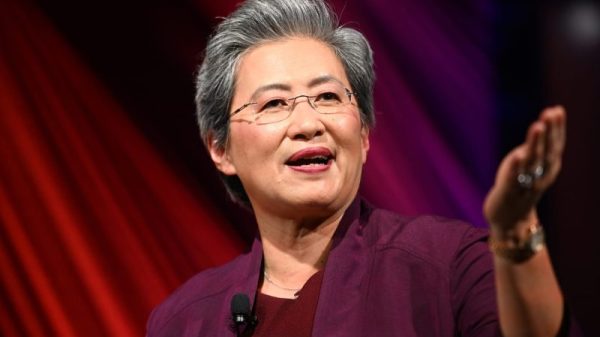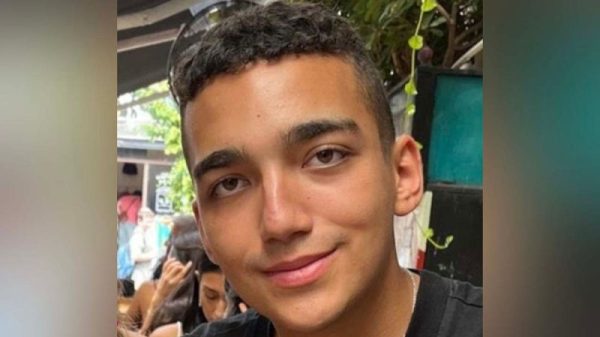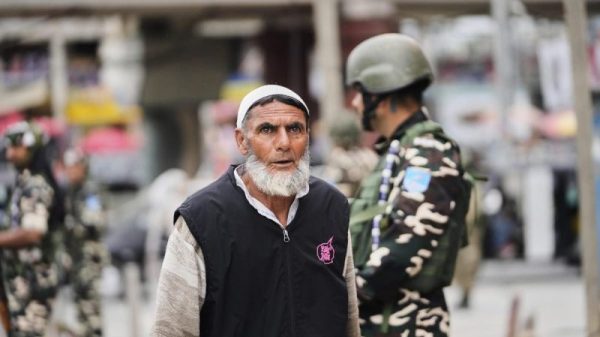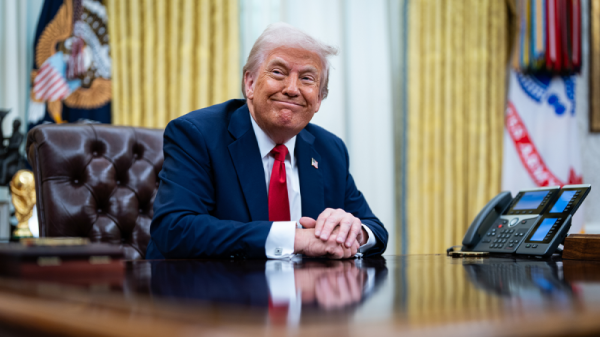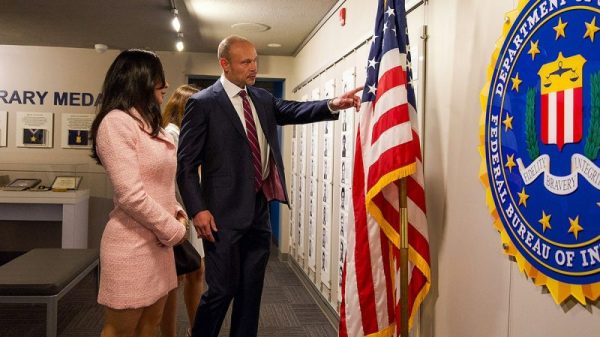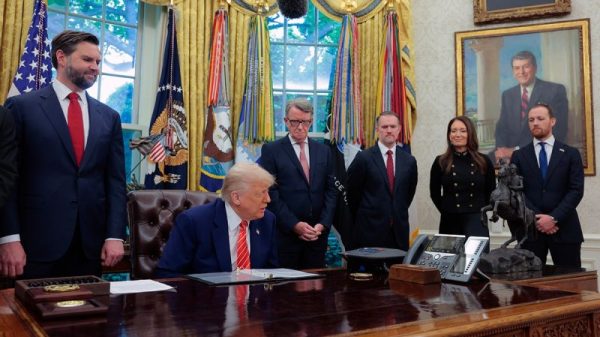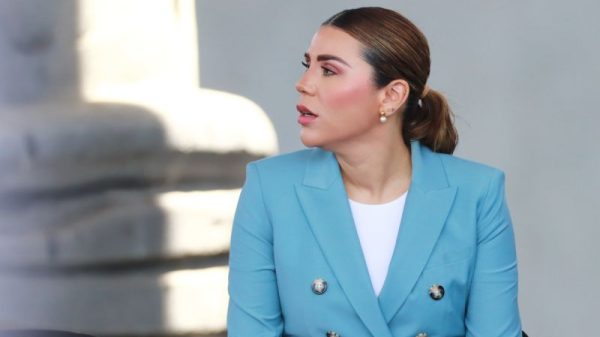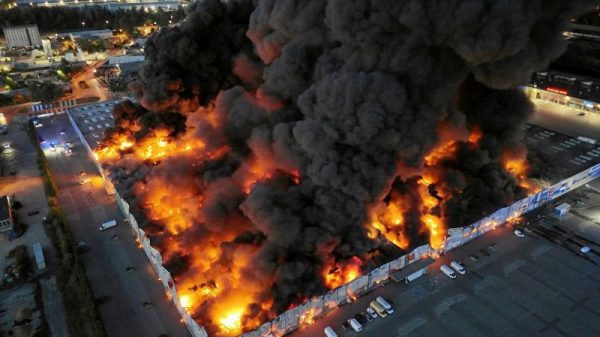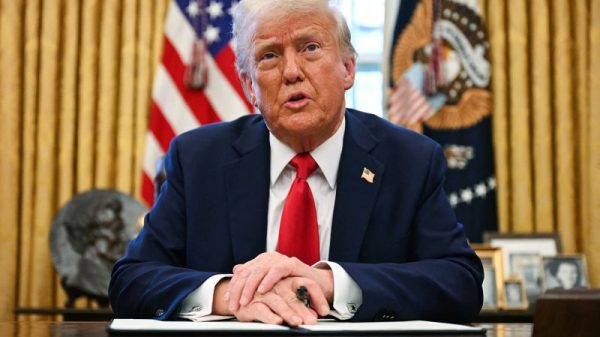On February 26, one of Russia’s longest-serving human rights activists stood up at the end of his trial in a Moscow court and offered his uncensored verdict on Russian democracy.
“The state in our country is once again controlling not only social, political and economic life, but is now claiming full control over culture, scientific thought, and is inserting itself in private life. It’s becoming all-pervasive,” said Oleg Orlov, a 70-year-old who was on trial for “discrediting the army.”
Powerful voices like Orlov’s are becoming a rarity in Russia, where high-profile opponents to President Vladimir Putin and his ruling elite are now mostly either in exile, in prison, or dead.
Russia’s full-scale invasion of Ukraine in February 2022 accelerated a process already two decades in the making — the erosion of democratic freedoms, media independence and civil society at home. With the war now in its third year, and Putin set to be re-installed for a fifth term in a tightly-controlled election next week, there are signs that this process is picking up speed once again.
Orlov, co-founder and co-chair of Memorial, a Nobel Prize-winning human rights organization set up in the Soviet Union’s twilight years, knew he had nothing to lose.
The day after his speech in court, he was sentenced to two and a half years in prison. Discrediting the army is just one of several new offenses added to Russia’s penal code since the invasion of Ukraine.
Orlov’s so-called crime was committed just over a year earlier, when he published an article in a French online newspaper titled “They Wanted Fascism, They Got It.” After his sentencing, Amnesty International called him a “prisoner of conscience” and called for his immediate release.
Russian human rights group OVD-Info says more than 260 people are currently serving jail terms in the country for crimes related to taking an anti-war stance. The group has recorded almost 20,000 detentions, and while most of those were at the beginning of the war, there is still a steady stream. They’re not large numbers in a country of 140 million people, said OVD-Info lawyer and analyst Darya Korolenko, but just enough to make for an effective deterrent.
And it’s not just known opposition figures or activists who are being targeted.
The wartime censorship laws — discrediting the army, or the more serious offense of knowingly spreading “false” information about the army — have turned social media into a minefield.
Platforms are closely monitored by the FSB, which acts as Russia’s secret service, said Konstantin Eggert, an exiled Russian journalist who was among many added to Russia’s ever-growing list of “foreign agents” last year. He believes the grip on social media will tighten further.
Evgeniya Mayboroda, a pensioner in her early 70s from Shakhty, a town less than 50 km (around 30 miles) from the Ukrainian border, found herself unable to conform to that uniform ideology. According to OVD-Info, she was arrested and fined in early 2023 for alleged anti-war social media posts.
In January, she was jailed for five and a half years for spreading “false” information about the army. Russian independent news outlet Mediazona reported she was convicted after two reposts on VKontakte — Russia’s version of Facebook — including one about Russian troop deaths.
In this climate, old practices are creeping in, like Soviet-style denunciations. In early February, 67-year-old Moscow pediatrician Nadezhda Buyanova was accused by a young patient’s mother of calling her husband — who had recently been killed in the war — a “legitimate target for Ukraine.”
The woman filed an official report and Buyanova was arrested, her modest Moscow apartment ransacked by police.
Russia’s powerful investigative committee ordered a criminal case be opened on charges of spreading false information about the army. Buyanova, who denies the charges, is out on bail, but is now suing to try to get her job back.
“The climate is fed by the mainstream media that everyone is a spy and a traitor, foreign agent, everyone wants to destroy Russia, destroy your home,” said Korolenko. “People fear that they will lose what they care about. So they try to protect this.”
‘Deeper and deeper into this darkness’
With mainstream Russian media now entirely state-controlled, the authorities are targeting other forms of expression — the arts, literature and culture. Orlov argued in his courtroom speech that this is yet more proof of Russia “sinking deeper and deeper into this darkness” at an ever-quickening pace.
He listed evidence from the last four months alone, including: the branding of the LGBTQ movement as extremist, new rules prohibiting students at Moscow’s prestigious Higher School of Economics from citing people on Russia’s growing list of “foreign agents” in their work, and the effective banning of many modern authors.
One of those authors is Grigory Chkhartishvili, who goes by the pen name Boris Akunin. One of Russia’s most popular modern literary figures, a master of the historical detective genre, he’s been living in exile since 2014 — but that has not insulated him from Russia’s crackdown. In December, Akunin was added to Russia’s “terrorist and extremist list” for allegedly justifying extremism and spreading false information about the Russian army.
Despite Akunin’s regular public criticism of Putin and the war, that move was apparently triggered by what he sees as an orchestrated setup — a prank call by Russians posing as Ukrainians, later posted online, in which he was tricked into expressing his opposition to the war and his willingness to help Ukraine.
In response, his main publisher in Russia announced it would not be releasing new copies of his books, and a major network of bookstores pulled them off its shelves. In January, Akunin was labeled a foreign agent, and in early February a Moscow court issued an arrest warrant for him for allegedly justifying terrorism and spreading false information about the Russian army.
“The Russia that I remember was not like this,” he said. “It was a troubled, chaotic democracy, an interesting country where a lot of things were happening. Now, it has become totally Kafkaesque, Orwellian.”
For many in Russia’s disparate dissident community, the death of Alexey Navalny, Putin’s most prominent critic, was the last stop on the country’s journey back to authoritarianism. Akunin said he believes it is clear evidence the Kremlin is no longer even trying to hide the lengths it will go to stamp out dissent.
Russia did not make the mass arrests or carry out a violent crackdown at Navalny’s funeral last week, as many of the activist’s supporters had feared, but no one should be fooled by that, said Andrei Soldatov, a Russian investigative journalist and expert on the Russian intelligence services.
Borrowing an effective tool from the days of Covid-19 regulations, he said, Russian authorities simply relied on surveillance from Moscow’s many facial recognition cameras, as well as plainclothes officers from the Center for Combating Extremism, a unit of Russia’s interior ministry.
Arrests of those who laid flowers at makeshift memorials and attended Navalny’s funeral have continued for days after the event, and in one case, according to OVD-Info, a Moscow resident arrested on March 5 was told he had been spotted on security camera footage.
Soldatov said this is this reaction stems from an official paranoia in Putin’s Russia, an “an incessant obsession with the fragility of the state,” fueled by history and made worse by the war in Ukraine, as well as the impending election.
It all goes back to the “two historical traumas of 1917 and 1991,” he said — the Bolshevik revolution and the collapse of the USSR.
“They don’t understand why two Russian empires basically collapsed for no apparent reason,” he said. “So everything you can do to prevent this is justifiable.”
In his final words to the Moscow court, Orlov echoed that sentiment.
“The authorities are even at war with the deceased Navalny,” he said. “They fear him, even when he is dead.”










